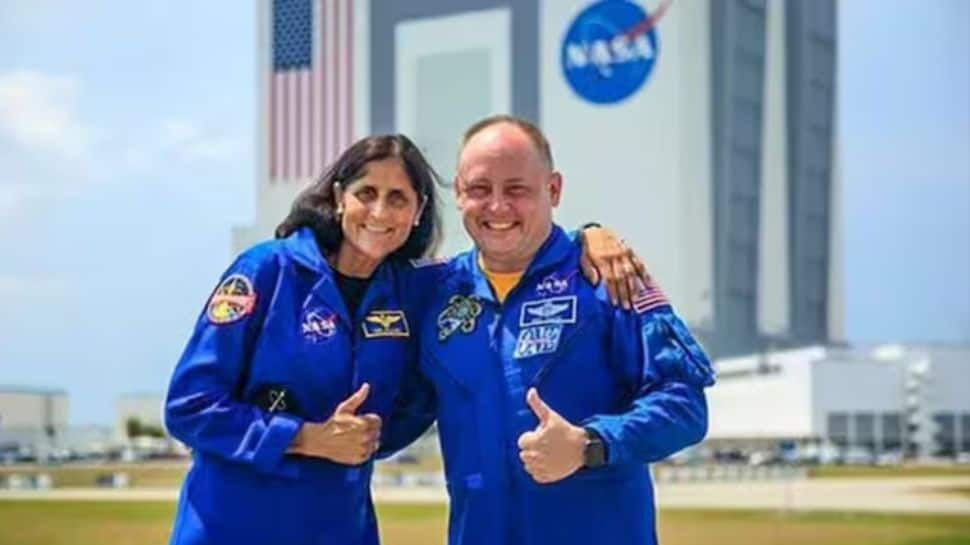Even as NASA is expected to take a final call on Saturday to plan the return of Indian-origin Sunita Williams and Butch Willmore to Earth from the International Space Station (ISS), health experts have pointed out the risks to the human body due to prolonged stay in microgravity.
Williams and Willmore became the first to fly on Boeing’s Starliner spacecraft on June 5. The eight-day mission to the ISS has been extended to more than two months in space for the duo. NASA officials have expressed concerns about technical glitches on the Starliner that could pose risks during deorbiting from Earth.
The space agency is expected to decide on Starliner’s safety levels. If it deems Starliner unfit, astronauts would likely return aboard a SpaceX Dragon capsule in February 2025. However, the extended mission is likely to increase their exposure to microgravity and lead to space anemia, health experts said.
Microgravity can reduce the haemoglobin and red blood cell (RBC) count, which are essential for transporting oxygen and nutrients throughout the body. “If astronauts develop anaemia during their space missions, which could be of long duration, there could be a significant impact on their energy, strength and stamina,” Dr Anoop P, Senior Consultant, Haematology, Paediatric Haemato-Oncology and Bone Marrow Transplant, Aster RV Hospital, Bengaluru, told IANS.
Sequestration and hemolysis can be considered the main causes of spatial anemia, meaning that red blood cells are destroyed prematurely, he explained.
The net effect is that more red blood cells are destroyed than are produced during the time in space, which can seriously affect the health of astronauts, not only during prolonged stays in space, but also upon their return to Earth, the expert said.
According to NASA, the human body on Earth creates and destroys about 2 million red blood cells every second.
However, astronauts destroy 54 percent more red blood cells, or 3 million per second, during six-month space missions, a 2022 study published in the journal Nature Medicine found. The study showed the effects can be felt only after landing on Earth.
“In space, astronauts may have reductions in blood volume and orthostatic tolerance, as well as reduced aerobic capacity and a high likelihood of arrhythmias. Whereas the cardiovascular system appears to function well in space and the body does not require as much effort from the heart (which is still a muscle) in microgravity,” Dr Irfan Khazi Javeed, consultant, internal medicine, Manipal Hospital, Bengaluru, told IANS.
Anoop suggested proper exercise regimes to help maintain red blood cell levels, regular monitoring of blood parameters during the mission and having access to a diet rich in iron and other essential nutrients that help maintain adequate hemoglobin levels and support red blood cell production as possible solutions that could help improve their health conditions during their space mission.
“Ongoing studies into the mechanisms of space anemia are critical, as understanding the underlying causes, such as increased hemolysis and the impact of microgravity on bone marrow function, may lead to the development of targeted therapies and strategies to prevent anemia during long-duration space missions,” he said.
Williams, selected as an astronaut by NASA in 1998, is a veteran of two space missions: in 2006 and 2012. Born to Indian-American parents, she also currently holds the record for the longest time spent in space by a woman: 322 days.
The latest mission is expected to set a new record for her.
Disclaimer:
The information contained in this post is for general information purposes only. We make no representations or warranties of any kind, express or implied, about the completeness, accuracy, reliability, suitability or availability with respect to the website or the information, products, services, or related graphics contained on the post for any purpose.
We respect the intellectual property rights of content creators. If you are the owner of any material featured on our website and have concerns about its use, please contact us. We are committed to addressing any copyright issues promptly and will remove any material within 2 days of receiving a request from the rightful owner.

